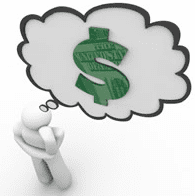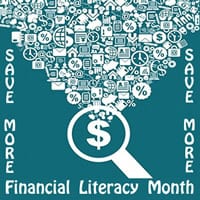2020 has been a year unlike any other – from job loss / furloughs to pandemics to hurricanes. All of this has signaled changes in our lives, not only in what we do (or don’t do), how we live and how it affects our finances. We must learn to adapt our finances to changing times.
For many this is a year that you started (or continue) to accumulate debt. Not a good thing! 
Let’s first talk about all the ways that you may be accumulating debt:
Not having an emergency fund. You have heard me preach over the years about having a savings account for life’s what ifs. This was the year that many of us needed to fall back on our emergency savings as jobs were lost / furloughed and the unemployment system was overwhelmed, and payment were delayed. Your emergency savings was the way to get you through in these uncertain times.
Adapting to change (the new normal). As your life changes, so should your finances. Meaning that if you have job loss / less income coming in, you need to tighten your belt and cutback on your expenses. Answer these two questions. Think what can I get for free that I have been paying for? Think what can I reduce or eliminate in my monthly expenses? Want more information, check out my past newsletter, Budgeting By The Numbers.
Eating out / take out. Food is one of the biggest expenses in a family’s budget. Typically, when I coach a family, it the food that is an issue with their spending. How much is it costing you to eat out, pick up take out, grab a beverage versus bringing and cooking at home? Track this and see where your family stands.
Reimbursable costs. In these uncertain times, you may have more medical than other years. Make sure to utilize all your options such as FSA and HSA accounts, in network providers, etc. I was speaking with someone who hadn’t submitted any expenses to her FSA account. She potentially could be leaving a lot of money on the table by not timely submitting her expenses for reimbursement.
Check out next week’s newsletter for part 2.
 ad to change.
ad to change. Delivery trucks parking on the sidewalk and the salt from the winter storms always made this grassy area a mess. Our hosta plants needed to be split, so this solved the problem. We removed the grass and placed weed block down, added the plants and completed it with mulch. No cost to us, just labor over two weekends.
Delivery trucks parking on the sidewalk and the salt from the winter storms always made this grassy area a mess. Our hosta plants needed to be split, so this solved the problem. We removed the grass and placed weed block down, added the plants and completed it with mulch. No cost to us, just labor over two weekends.


 We unplug the computer and accessories when we are not using them. We have cleaned the back of the fridge to make it run more efficiently. We are doing air drying with the dishwasher cycle. We wash as much laundry as possible in cold water.
We unplug the computer and accessories when we are not using them. We have cleaned the back of the fridge to make it run more efficiently. We are doing air drying with the dishwasher cycle. We wash as much laundry as possible in cold water.